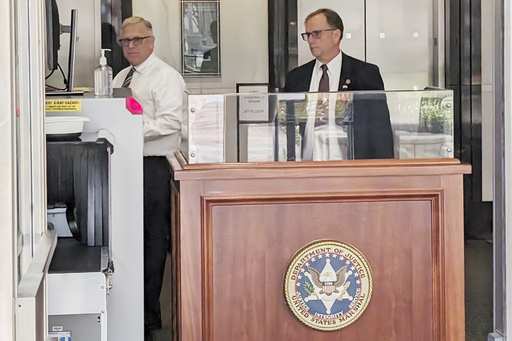OAKLAND, Calif. — On Monday, Phil Schiller, a veteran Apple executive, admitted in an Oakland federal courtroom that he initially resisted imposing fees on in-app transactions processed outside Apple’s proprietary payment system. The fear was rooted in violating a court-ordered directive aimed at enhancing marketplace competition.
Schiller, who manages Apple’s profitable App Store for iPhones, revealed this during three hours of testimony. It was his first court appearance since nearly nine months ago, in a legal standoff with Epic Games, the creator of Fortnite. This courtroom battle began over four years ago when Epic Games filed an antitrust lawsuit accusing Apple of creating an unlawful monopoly. The controversy revolves around Apple’s App Store, which generates significant revenue through its previously exclusive payment system, levying commissions between 15% and 30% on in-app purchases.
Although U.S. District Judge Yvonne Gonzalez Rogers dismissed the monopoly claims, she mandated Apple to reduce barriers around its exclusive payment setup and authorized developers to link to alternative payment options. Apple spent more than two years attempting to overturn Rogers’ ruling before finally accepting other payment systems 13 months ago.
Nevertheless, Apple still demands a commission of 12% to 27% on transactions executed through these third-party systems, setting up challenges that Epic argues are intended to discourage such alternatives. Judge Gonzalez Rogers is currently deliberating on whether to find Apple in contempt of court and require more substantial reforms from the tech giant based in Cupertino, California.
Since the judge initiated this process last May, she has become increasingly exasperated with Schiller and other Apple representatives for their unclear memories regarding the App Store’s policies on alternative payment systems. Her dissatisfaction led to a halt in proceedings while another judge reviewed Apple’s internal documents to shed light on their decision-making process.
These documents aided Epic’s attorney, Gary Bornstein, in reminding Schiller of his wariness to charge fees outside Apple’s own payment systems. “I had a question of whether we would be allowed to charge a commission,” Schiller recollected from meetings in April 2023. “It was a question about what was allowed under the injunction” issued by Gonzalez Rogers.
Among the concerns was the “compliance risk” posed by fees on alternative payment methods. Schiller also worried about “collection risk” due to Apple’s reliance on developers to forward owed funds. With its internal payment system, Apple can easily deduct its share before paying out to developers.
“What happens if a developer doesn’t pay and what is the process for that?” Schiller reflected on his initial worries about imposing fees on non-Apple payment methods. He also expressed concerns over potentially straining relationships with developers, who have typically supported Apple.
Ultimately, Schiller approved the commissions in January 2024, as part of a pricing committee that included CEO Tim Cook and then-chief financial officer Luca Maestri. Schiller also acknowledged that Cook advocated for a cautionary screen to alert users to the security risks posed by alternative payment methods.
Hearings on this matter are scheduled to continue through Tuesday and Wednesday. Carson Oliver, one of Schiller’s key subordinates who testified last year, is among the witnesses slated to provide evidence.
